Chris Hawkesworth Named 2025 Recipient of V. M. Goldschmidt Award
February 11, 2025
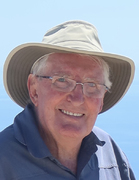
Chris Hawkesworth, Professor Emeritus at the University of Bristol (UK) will receive the 2025 Victor M. Goldschmidt Award this July. The Goldschmidt Award is the society's highest honor, presented annually for major achievements in geochemistry over a career. Prof. Hawkesworth is recognized for exceptional scientific contributions, made through the application of advanced geochemical proxies, that have guided our understanding of the crust and lithosphere and their interactions with the convecting mantle. His work has helped transform geochemistry by emphasising its applicability to understanding the processes operating over the entirety of Earth's existence.
Avner Vengosh Named 2025 Recipient of Clair C. Patterson Award
February 11, 2025
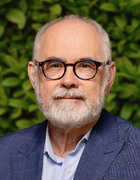
Avner Vengosh, Distinguished Professor of Environmental Quality at Duke University (USA) will receive the 2025 Clair C. Patterson Award in July. The award is presented annually for an innovative breakthrough in environmental geochemistry of fundamental significance within the last decade, particularly in service to society. Prof. Vengosh is recognized for his work evaluating the impact of conventional and nonconventional energy development on environmental geochemistry, especially of water resources.
Suzanne Birner Named 2025 Recipient of F. W. Clarke Award
February 11, 2025
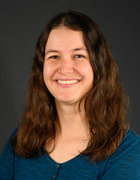
Suzanne K. Birner, Associate Professor of Geology/Earth Science at Berea College (USA) will receive the 2025 F. W. Clarke Award this July. The Clarke Award honors a single outstanding contribution to geochemistry or cosmochemistry by an early-career scientist. Prof. Birner is recognized for her series of papers that decipher and document the processes occurring in the Earth's mantle that have generated variations of several orders of magnitude in oxygen fugacity, with broad implications for the history of Earth's interior and atmosphere.
New Members Join Board of Directors
February 03, 2025
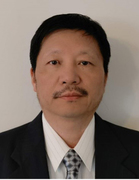
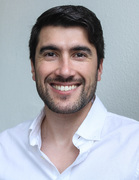
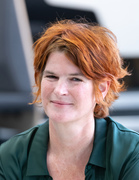
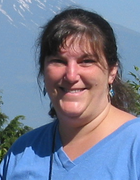
(New board members, from left: Hailiang Dong, Mariano Remirez, Tina van de Flierdt, and Elisabeth Widom.)
Four new members joined the GS Board of Directors in January. Hailiang Dong began his term as Executive Editor of Geochimica et Cosmochimica Acta and as an ex officio member of the board. Mariano Remirez was elected by the society membership as an early career director for a two-year term. Tina van de Flierdt and Liz Widom were elected directors with three-year terms. More information about the board and its role in governing the society can be found on this page.
Paula Welander to Receive John Hayes Award
January 15, 2025
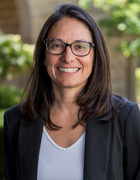
Paula V. Welander, Professor in the Department of Earth System Science at Stanford University (USA) is the recipient of the 2024 John Hayes Award from the GS. Prof. Welander is also the Associate Dean of Integrative Initiatives (DEI) in the Doerr School of Sustainability and Associate Vice Provost for Graduate Education and Postdoctoral Affairs. The award is given to a mid-career scientist for outstanding accomplishments that draw together multiple fields of investigation to advance biogeochemical science. It was created in 2017 by the Organic Geochemistry Division and a group of friends, colleagues, and students of John Hayes. Prof. Welander is recognized for discovering the pervasive role of radical chemistry in the biosynthesis of geostable microbial membrane lipids. The new knowledge generated by her work is fundamental to the use of chemical fossils for reconstructing the history of ocean plankton and their application to climate reconstructions both recent and ancient. The presentation of the award will take place at the IMOG this September.
Vote in the GS Board Election
January 07, 2025
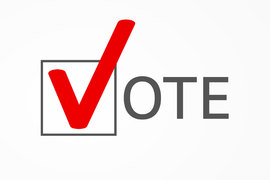
All current GS members are entitled to vote in the annual Board of Directors election. The board governs the society throughout the year and represents the interests of the membership. Please take a moment to review the candidates and vote. The election is open until 21 January 2025. If you have not received your ballot by email, please let us know at gsoffice@geochemsoc.org.
Elements: Himalayan Leucogranites
January 07, 2025
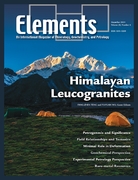
The Himalaya, the youngest and largest mountain range on Earth, is home to 10 of the world's 14 mountain peaks higher than 8000 meters above sea level, including the highest Qomolangma Peak, widely known as Mt. Everest (8848 m). Leucogranites are exposed intermittently throughout over 2000 km along the crest of the Himalaya, forming on the summits or as an essential component of these high peaks. These Himalayan leucogranites are quintessential examples of crust anatexis associated with collisional orogenesis. They provide a rare opportunity to explore the interplay of geodynamics, tectonics, and magmatism in a classic continental collisional setting. Extensive studies on these leucogranites have significantly advanced our understanding of crustal anatexis, felsic magma differentiation, and the tectonic evolution of the Himalayan-Tibetan Orogen. This issue of Elements reviews the petrogenesis and significance of Himalayan leucogranites, focusing on their tectonic and geodynamic context, source rocks, petrology, geochemistry, and genetic links to orogenesis and economic resources. This issue not only summarizes the state-of-theart research on Himalayan leucogranites but also presents an example of how a multidisciplinary approach can elucidate granite petrogenesis and associated mineralization and orogenic evolution.
Current Geochemical Society members can access this issue now via the Elements website using your email address (UserID) and member number (Password).
Annual GS Members Meeting
October 09, 2024

The GS will hold its annual meeting of the membership on Wednesday, October 30 at 18:00 EDT. Society President Liz Sikes will present an update on programs and finances, followed by an open discussion. All Geochemical Society members are encouraged to attend. The meeting will take place virtually via Zoom.
Elements: Behind and Beyond Luminescence Imaging
October 03, 2024

Luminescence-based optical or SEM images are increasingly used in Earth sciences research. Examples include formation and post-growth history of minerals from their internal textures, taking into account multiple interior regions of complex crystals. For such simple approaches it is actually unnecessary to understand the particular causes of emissions. During the last decade, however, spectroscopic research has led to substantial progress in our understanding of the emissions of minerals. The main objective of this issue is to convince readers that luminescence is not at all restricted to interesting pictures that show “something,” but analysis of the emissions may bear a wealth of information on what exactly is observed. Luminescence spectroscopy has become a versatile, quantitative group of techniques whose successful applications virtually cover all geoscientific sub-disciplines.
Geochemical Society members can access this issue now via the Elements website using your email address (UserID) and member number (Password).
GS Online Seminar Series
October 02, 2024
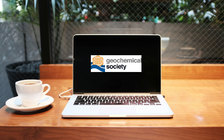
We are pleased to announce our (boreal) fall seminar series! These free, one-hour sessions are presented on scientific, DEI (diversity, equity, and inclusion), and career development topics. Join us for the live webinars or watch recordings later.
October 10: Open Data in Geochemistry: Making, Delivering and Harnessing FAIR Data with Global Data Providers
October 17: Metasediments from the lower crust: how and why are they there?
More events coming soon!